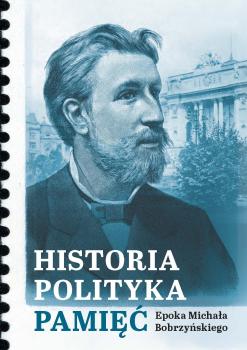O czym piszemy historię? Refleksji kilka o historiografii Michała Bobrzyńskiego ………. 75
Streszczenie
Michał Bobrzyński znany jest przede wszystkim jako historyk oraz autor Dziejów Polski w zarysie i powszechnie łączony z głównym nurtem tzw. krakowskiej szkoły historycznej. W niniejszym artykule próbowano odpowiedzieć na pytania dotyczące metodologii Bobrzyńskiego i jego teorii pracy nad przeszłością na podstawie tekstów krakowskiego historyka. Skoncentrowano się przy tym na dwóch centralnych problemach: rzeczowym i epistemologicznym fundamencie narracji historycznej oraz politycznej funkcji rewizjonistycznej historiografii. Tekst ukazuje Bobrzyńskiego jako badacza, który świadomie podjął próbę obalenia romantycznego mitu narodowego – nie w imię postępu, lecz w imię specyficznie postrzeganej prawdy oraz pragmatyzmu politycznego. Bobrzyński w swojej twórczości odrzucił zdecydowanie bezrefleksyjny pozytywizm, jak i idealistyczną filozofię dziejów, w zamian wysunął postulat autorskiej „nowej historii”. Paradygmat ten, choć prawie już zapomniany, był pierwszą polską próbą opisu przeszłości w kategoriach ścisłej dyscypliny metodologicznej, krytycyzmu wobec mitów, a także głębokiego zaangażowania w kwestie wspólnoty politycznej. Dopełnieniem rozważań nad teoretycznymi fundamentami prac Bobrzyńskiego jest zadanie pytania o jego intelektualne dziedzictwo i potencjalną aktualność. W pracy poruszono także kwestię spuścizny szkoły krakowskiej z jej współczesnymi echami, od konserwatyzmu Stanisława Cata-Mackiewicza po rewizjonizm Piotra Zychowicza. W kontekście tym wskazano również alternatywne i opozycyjne nurty współczesnej polskiej myśli historycznej, których obecność, nie wprost, dowodzi istnienia pewnych niewygasłych i wciąż kontynuowanych sporów intelektualnych wewnątrz narodu od niespełna dwóch stuleci.





